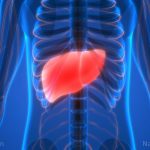
Study: Drinking at least 2 cups of coffee a day helps maintain healthy blood pressure
Wednesday, February 15, 2023 by Zoey Sky
http://www.naturalnewstips.com/2023-02-15-2-cups-coffee-daily-healthy-blood-pressure.html

If you start each morning with a cup (or two) of coffee, here’s something that might cheer you up: According to a study, those who drink at least two or three cups of coffee per day have lower blood pressure than people who consume less.
The study was published in the journal Nutrients.
Coffee and heart health
Coffee is an integral part of the culture in Italy and the beverage also has many fans worldwide. In 2020 and 2021, estimates revealed that the world consumed a whopping 10 million tons of coffee.
While experts don’t always agree on coffee’s health implications, data from recent studies suggest that drinking coffee can help lower the risk of several conditions like cardiovascular disease, diabetes and neurodegenerative and liver diseases.
But what causes these benefits remains a mystery.
Arrigo Cicero, the study’s first author and a professor at the Department of Medical and Surgical Sciences at the University of Bologna, explained that caffeine is only one of several coffee components and that it’s not the only component with an active role.
Cicero added that positive effects on human health have also been recorded in people who choose to drink decaffeinated coffee. While data has shown that caffeine can increase blood pressure, other bioactive components in coffee “seem to counterbalance this effect with a positive end result on blood pressure levels.” (Related: 5 Caffeine FACTS and 5 caffeine MYTHS.)
Coffee consumption habits and blood pressure levels
To learn more about the heart benefits of coffee, researchers analyzed a sample of 720 men and 783 women from the Brisighella Heart Study.
The research team compared blood pressure levels, coffee consumption habits and other clinical data points for each participant. The results revealed that peripheral blood pressure was significantly lower in the people who drank one to three cups of coffee a day compared to the non-coffee drinkers.
Peripheral blood pressure describes blood pressure measured from the upper arm.
Thanks to the study, researchers were also able to confirm these effects “with regard to the central aortic pressure, the one close to the heart,” where experts observe an almost identical phenomenon “with entirely similar values for habitual coffee drinkers compared to non-coffee drinkers.”
High blood pressure is closely linked to heart disease because of the high force of blood consistently pushing against the walls of your blood vessels. This forces the heart to work harder so it can pump blood.
The findings from the University of Bologna study are valuable because they offer another potential nutritional avenue for naturally lowering blood pressure and protecting against heart disease.
Professor Claudio Borghi, who led the study, explained that it is the first study to observe this association in the Italian population. The findings also confirm the positive effect of coffee consumption on cardiovascular risk.
More tips on how to maintain healthy blood pressure
Hypertension (high blood pressure) affects one-third of all adults in the U.S., and only less than 50 percent of them have the condition under control.
This is bad because high blood pressure can cause serious health problems without showing any warning signs. When your blood pressure is too high for too long, it puts you at risk for conditions like heart disease, kidney damage, stroke or an aneurysm formation.
Fortunately, making good lifestyle changes can help you naturally lower your blood pressure.
Exercise regularly
Regular physical activity is crucial for your overall well-being. Exercise helps control high blood pressure and it can also help you manage a healthy weight, strengthen your heart and lower stress levels.
If you are fit enough, aim for at least 150 minutes of exercise per week of moderate-intensity physical activity, like brisk walking.
While any type of aerobic activity like dancing, jogging or walking offers benefits for your heart health, try to find activities you enjoy doing so it will be easier to commit to a regular routine.
Increase your potassium intake
Potassium offers many benefits. It can help regulate heart rate and it can also reduce the effects of sodium in the body.
The nutrient helps your body eliminate sodium and also eases tension in your blood vessel walls, both of which help to lower blood pressure.
The most effective way to increase your potassium intake is by adjusting your diet and eating potassium-rich foods such as:
- Beans
- Fruits like apricots, avocados, bananas, melons, oranges and tomatoes
- Leafy green vegetables, potatoes and sweet potatoes
- Milk, cream cheese and yogurt
- Nuts and seeds
- Salmon and tuna
Incorporating these superfoods into your diet can help boost your heart health, but if you’re not sure check with your doctor about the potassium level that’s right for you.
If you have significant kidney disease, avoid consuming too much potassium because your kidneys may not be able to eliminate it.
Reduce your salt intake
Most people consume too much salt without even realizing it. The American Heart Association estimates that the average American consumes a whopping 3,400 mg of sodium a day.
The recommended daily intake is only 2,300 mg, with an ideal limit of less than 1,500 mg per day, especially for people who have high blood pressure.
Making a small reduction in your sodium intake can still help improve your heart health. It can also reduce your blood pressure if you have high blood pressure.
Follow these tips to decrease sodium in your diet:
- Check food labels and get “low salt” or “low sodium” alternatives to the food and beverages you normally buy.
- Limit your intake of processed foods. Only a small amount of sodium naturally occurs in foods and almost 70 percent of the sodium you eat comes from processed, prepackaged and restaurant foods.
- Don’t add salt when cooking. One teaspoon of salt contains 2,300 mg of sodium. When cooking, use flavorful salt substitutes like garlic, herbs, spices and other seasonings.
Moderate your alcohol consumption
According to some studies, drinking alcohol in moderation can benefit your heart. But drinking too much alcohol can trigger a sudden spike in your blood pressure.
If you do drink, the American Heart Association recommends that men limit their alcohol consumption to two drinks per day. Women should limit their alcohol intake to one drink per day.
A drink is considered one 4 oz. of wine, 12 oz. beer, 1.5 oz. of 80-proof spirits, or 1 oz. of 100-proof spirits.
If you’re currently taking medication to treat high blood pressure, closely monitor your alcohol intake since it can reduce the effectiveness of blood pressure medications.
Manage your stress levels
Stress is a common part of your daily life and when a stressful situation is resolved, your heart rate and blood pressure usually returns to normal. But be wary of chronic stress because it may put you at risk for many long-term health problems like high blood pressure, heart disease and stroke.
Stress can also increase your blood pressure levels if your coping mechanisms involve snacking on junk food, drinking alcohol or smoking.
It’s impossible to eliminate all stressors from your life, but learning to cope with them in a healthier way can benefit your overall health and wellness. This can then help lower your blood pressure.
Avoid stress triggers and try to avoid putting yourself in unnecessary stressful situations. If the commute to work means you often get stuck in rush-hour traffic, try leaving for work a few minutes early.
You should also take time to relax and enjoy. Spend a couple of hours on the weekend doing things that make you happy. It can be as simple as preparing a healthy and delicious meal, reading or enjoying a cup of coffee with your best friend.
Follow a balanced diet, maintain a healthy weight and drink two to three cups of coffee a day to help reduce your blood pressure.
Watch the video below to know more about organic fair trade coffee.
This video is from the Health Ranger Store channel on Brighteon.com.
More related stories:
Study: People who drink coffee have lower risk of early death.
Study: Coffee drinkers have higher levels of anti-inflammatory gut bacteria.
Sources include:
Tagged Under: Tags: alternative medicine, blood pressure, coffee, food cures, food is medicine, food science, functional food, goodfood, goodhealth, goodmedicine, goodscience, health science, heart disease, heart health, natural cures, natural health, natural medicine, remedies, research, superfoods
RECENT ARTICLES


Study: Drinking at least 2 cups of coffee a day helps maintain healthy blood pressure
By Zoey Sky

Manage or prevent fatty liver disease naturally with these tips
By Olivia Cook

Brannon Howse shares tips on how Americans can SURVIVE a nuclear attack
By Kevin Hughes

Adding milk to coffee can help fight inflammation, suggests study
By Zoey Sky
COPYRIGHT © 2017 NATURAL NEWS TIPS


